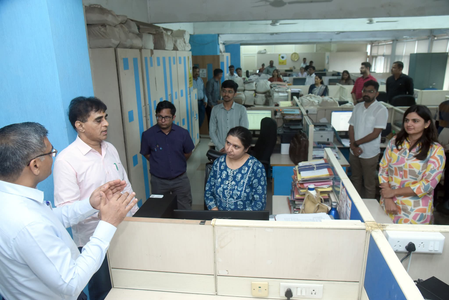
New York, April 15 (IANS) People with a certain heart valve abnormality may be at an increased risk of developing severe heart rhythm disorders also known as arrhythmias, according to a study on Tuesday.
Researchers from the Karolinska Institutet in Sweden showed that the valve abnormality called Mitral annular disjunction (MAD) increases the risk of ventricular arrhythmias — a dangerous type of heart rhythm disorder that, in the worst case, can lead to cardiac arrest.
The team found that the risk of arrhythmias persists even after successful valve surgery.
MAD is often associated with a heart disease called mitral valve prolapse, which affects 2.5 per cent of the population and causes one of the heart’s valves to leak. This can lead to blood being pumped backward in the heart, causing heart failure and arrhythmias. The disease can cause symptoms such as shortness of breath and palpitations.
The study, published in the European Heart Journal, showed that people with MAD were more likely to be female and were on average eight years younger than those without MAD.
They also had more extensive mitral valve disease.
Although the surgery was successful in correcting MAD, these patients had more than three times the risk of ventricular arrhythmias during five years of follow-up compared to patients without preoperative MAD.
“Our results show that it is important to closely monitor patients with this condition, even after a successful operation,” said Bahira Shahim, Associate Professor at the Department of Medicine, Solna, Karolinska Institutet.
In the study, the researchers investigated the risk of cardiac arrhythmias in 599 patients with mitral valve prolapse who underwent heart surgery at Karolinska University Hospital between 2010 and 2022.
The study aims to further explore new hypotheses such as that MAD causes permanent changes in the heart muscle over time, and that MAD is a sign of an underlying heart muscle disease.
–IANS
rvt/




